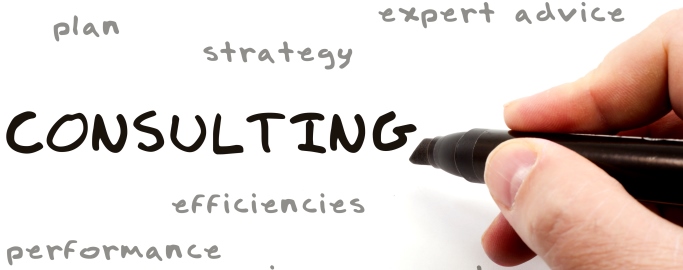How to Turn Procrastination into Productivity

We were all groomed to associate procrastination with negative, unproductive habits that are linked to failure. But what if I told you this idea that you’ve held on to since you were born was inaccurate?
Procrastination isn’t something new. Everyone does it, and tries to avoid it all the time. Teachers, business owners and managers have a good eye for catching such habits. In time, procrastination has been linked to lack of motivation and laziness. However, a closer look will tell you that procrastination is essential when it comes to setting goals and priorities.
Procrastination in Management Consulting
From a general standpoint, most consultants can’t afford to procrastinate while sitting at their desks. Their days and weeks are usually filled with meetings, presentations, research and networking. The time they do have, which is very little, is usually spent on catching up on their personal life (doing groceries, talking to family and friends, and sleeping).
The problem with procrastination is that it doesn’t just happen during the pockets of free time that you have. It can strike anywhere, anytime. Procrastination is extremely persistent when one feels overloaded with work or overwhelmed with a pile of tasks. This is why consultants are always keen on staying focused. Most professionals know how quickly procrastination can take over, preventing them from doing essential tasks and meeting deadlines.
Furthermore, the pressure that a consultant faces can prolong the rate at which one procrastinates. Lack of presence of mind during client presentations and team reports can negatively impact a consultant’s job, making him or her seem unenthusiastic. Due to the competitive nature of the industry, being associated with such traits is not healthy for a consultant’s career.
Unfortunately, pressure associated with procrastination cannot only prolong procrastination, but also affect the current task being done. Since procrastination is classified as a distraction, it can cause a consultant to make errors in computation and analysis. Transitioning from a procrastinating idea to the present takes time, especially if one is stuck deep in his or her thoughts. As a result, this could lead to wasted time, preventing a consultant from being fully engaged in his or her work.
Doing Something We Don’t Want To Do
General human behavior dictates that if one does not want to do something, he or she won’t do it. If this is the case, why do we procrastinate? We all acknowledge and avoid focusing on things that are unimportant, but why can’t we stop doing it?
According to science, procrastination comes down to the way our brains are programmed. While concentration is required to complete tasks, it is nearly impossible to maintain for long periods of time. Even with the help of coffee and sleep from the night before, it’s only a matter of time when one gets distracted by external or internal factors.
Internal factors include thoughts, feelings and ideas. These variables are triggered by the unconscious part of our brain that is devoted to things we want in the present called the limbic system. Most of the things that we as humans procrastinate about are not things we dread doing. Instead, they are things we would rather be doing or places where we would rather be.
When the limbic system catches the mind off guard or unfocused, even for a split second, it goes into action. When this happens, we start loathing in those thoughts, putting priority on things that we think we are more important. There is no need to put yourself down if you catch yourself procrastinating; everyone is prone to doing this action, regardless of age or gender.
The Benefits of Procrastination

Since procrastination is unavoidable, it is recommended to change the way we perceive and think about it. If we constantly bog ourselves with pressure to concentrate, it can trigger deeper sets or procrastination, which turns into a never-ending cycle.
To avoid this, one should first understand the benefits of procrastination. Firstly, procrastination acts as a filtering system for unimportant tasks. Just like emails, not all tasks are important. As professionals, we have the habit of making everything top priority. An example is bills that aren’t due until a week from the time they were received. Most people are persistent on filling up their day with errands that can actually be completed slowly throughout the week.
Procrastination, or the art of putting things off for a later time, can actually help you reorganize your priority list. Basically, if a task was really that important, you’d be doing it immediately instead of just thinking about it. In this case, thinking about less essential things on the to-do list is merely a reminder of tasks that are yet to be completed.
Secondly, the phrase “save the best for last” is also applicable when it comes to tasks that we put off for later in the day or week. In this case, a different type of procrastination is at play; the type that causes individuals to think about more important things. When you’re thinking about the feeling of completing a project, it can actually cause you to do a better job when performing the action. This kind of procrastination can be channeled into motivation.
By procrastinating, you are indirectly streamlining your work, with minimal effort. This is only works if what you’re thinking about is something within your priority list or something that you feel is attainable. If you’re thinking about a vacation that you haven’t planned, chances are it will work against you and make you question what you’re currently doing. On the contrary, if you’re faced with a pile of papers to look over and lunch break is just 2 hours away; the fleeting thought of getting fresh air and biting into a tasty sandwich might be just what you need to get through a long list of tasks.
The Good Kind of Procrastination
Motivation can only get you so far. Like concentration levels, motivating thoughts and feelings can be easily depleted. Moreover, one can’t constantly be thinking about motivating ideas or memories as this takes time and attention away from the current task at hand. A solution for this is to apply a strategy that turns procrastination into something positive.
Priority lists are designed to have the most important things to do at the top, while the less essential things sit at the bottom. Those who are a fan of procrastinating will usually avoid tasks located at the top of the to-do list, as they are more difficult and time consuming. Because of this, the smaller menial tasks are done quickly, which somewhat defeats the purpose of a priority list, but unfortunately this is how most people go about their day or workload.
If you’re one of the majorities who does this, all you have to do is add tasks to your priority list that seem urgent. This technique is similar to setting your watch or alarm clock 10 minutes advanced, with hopes to boost punctuality levels.
Positive Procrastination Tips for Management Consultants
Now that we have established how procrastination can be used to one’s advantage, here are some methods that both candidates and consultants can use to increase productivity.
The first tip is to add more commitments or tasks to maintain a constant flow of things to do. Procrastination kicks in when we either have nothing to do, or when we have so much to do that we buy ourselves time due to being overwhelmed. There is a middle ground that you want to stay in, the point where you acknowledge that there are things to do and you feel confident about doing them. This is a healthy balance that can easily be maintained by quickly moving from on task to another, or by adding new tasks throughout the day.
Be Firm
Sometimes we allow ourselves to procrastinate or entertain fleeting thoughts while sitting through a boring presentation or conference. You also know yourself well enough to know what times of the day you are productive, and what times of the day idleness takes over. For that, you can follow up with the product manager certification.
Plan ahead and capitalize on the times of the day wherein your productivity levels are high. This could be in the morning after stepping into the office or even at night, after dinner while looking over trails of emails that your team sent earlier in the day. During these times, set boundaries by forcing yourself to be productive. At first it may seem impossible, but after a few days of consistently allotting the same period of time on a daily basis, your mind will be accustomed to focus and avoid stray thoughts and ideas.
Taking On Big Tasks through Small Steps
To conclude, converting procrastination into productivity starts small. For consultants, learning how to do this can make you more reliable and help you get more things done. Breaking down a big project into smaller tasks can lessen the feeling of being overwhelmed (which results in procrastination); and instead encourage you to complete the assignment one step at a time.









